Caryn’s Thoughts

 On this day, December 16th, in the year 1575, an earthquake occurred near Valdivia Chile. The city of Valdivia and the Chiloé Archipelago were once the two southernmost outliers of the Spanish Empire, located just north of the southern tip of South America. The earthquake occurred at 2:30pm, local time, and it is estimated that it was a magnitude 8.5 on the surface-wave scale and estimated magnitude of 9.0 on moment magnitude. The earthquake triggered the flooding of Valdivia. My first thought was, exactly how do we know all this. The answer is that Pedro Mariño de Lobera, who was the governor of Valdivia at that time, reported the quake and that the waters of the river opened like the Red Sea, one flowing upstream and the other downstream. That must have been quite a sight, and not likely to be one people would forget, and clear written documentation from an eyewitness helped too.
On this day, December 16th, in the year 1575, an earthquake occurred near Valdivia Chile. The city of Valdivia and the Chiloé Archipelago were once the two southernmost outliers of the Spanish Empire, located just north of the southern tip of South America. The earthquake occurred at 2:30pm, local time, and it is estimated that it was a magnitude 8.5 on the surface-wave scale and estimated magnitude of 9.0 on moment magnitude. The earthquake triggered the flooding of Valdivia. My first thought was, exactly how do we know all this. The answer is that Pedro Mariño de Lobera, who was the governor of Valdivia at that time, reported the quake and that the waters of the river opened like the Red Sea, one flowing upstream and the other downstream. That must have been quite a sight, and not likely to be one people would forget, and clear written documentation from an eyewitness helped too. 
Acting quickly, Mariño de Lobera evacuated the city because he was concerned about the dam at Laguna de Anigua (now known as Riñihue Lake). The dam, he suspected, would not hold up to the pressure any cracks might place on it. Then, suddenly, the dam gave way, and while he noted the unfortunate deaths of many Indigenous people, no Spaniards died, because the settlement of Valdivia was temporarily relocated away from the riverside. I’m sure that like many people these days who think that they can ride out a hurricane, flash flood, or other such natural disaster; there were those who did not see evacuation as necessary. They evacuated anyway, and I’m sure they were glad they did.
I have often wondered how we can possibly know that on that day, in 1575, an earthquake occurred, and where. I suppose if I were a seismologist, I might have a better understanding of how all that works, and how we could have evidence of something so long ago…much less the magnitude of it. Nevertheless, apparently, they know a lot about it…and they were able to determine that the effects of this earthquake are comparable to those of the 1960 Valdivia earthquake, which at 9.4 to 9.6, was the largest quake ever recorded on Earth. That quake also caused subsequent Riñihuazo flooding. That was significant to the seismologists, who learned that these similarities indicate that large earthquakes exhibit patterns that span several centuries. Today, Valdivia has made a recovery from both earthquakes. The 2017 census lists the population at over 150,000.

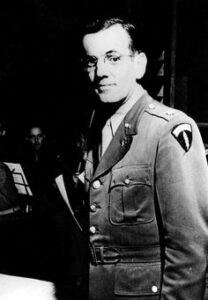 People tend to be drawn to mysteries, especially when it involves the disappearance of a celebrity. Of course, we always hope for a good outcome, but that is not always meant to be. Many people these days don’t know who Glenn Miller is, mostly because of the era he came from. Glenn Miller was an American big band conductor, arranger, composer, trombone player, and recording artist before and during World War II, but during World War II, he was an officer in the US Army Air Forces. It was in his role as a military officer when Glenn Miller went missing on December 15, 1944, after heading out over the English Channel on a small military plane bound for Paris. or apparently so.
People tend to be drawn to mysteries, especially when it involves the disappearance of a celebrity. Of course, we always hope for a good outcome, but that is not always meant to be. Many people these days don’t know who Glenn Miller is, mostly because of the era he came from. Glenn Miller was an American big band conductor, arranger, composer, trombone player, and recording artist before and during World War II, but during World War II, he was an officer in the US Army Air Forces. It was in his role as a military officer when Glenn Miller went missing on December 15, 1944, after heading out over the English Channel on a small military plane bound for Paris. or apparently so.
Shortly after the world learned that Miller, one of the University of Colorado Bould most distinguished alumni, had disappeared, the conspiracy theories began to fly. The fact that Miller was never found, just adds to the mystery surrounding this case. That doesn’t mean that the search is over. Still, 80 years is a long time for a mystery to remain unsolved. It is not for lack of trying, that the disappearance remains a mystery. For Miller’s family, I’m sure all the continuing speculation gets to be annoying, especially when it involves some sensationalistic theories designed to discredit Miller. Theories include things like an assassination before he even boarded the plane he was supposedly on for the purpose of a secret mission for Dwight Eisenhower, or that he made it to Paris ha died of a heart attack in a bordello (I find this one very distasteful, in that it is defamation of character), or that the small plane he was on was destroyed by bombs jettisoned from a phalanx of Allied bombers passing overhead on their way back from an aborted mission over Germany. I’m sure there were others, but without proof, people shouldn’t speculate.
Eventually, long after the war was over, the truth (at least as far as it will ever be proven) came out. Typical of the US government…and many other governments too, I’m sure…documents from the investigation were boxed 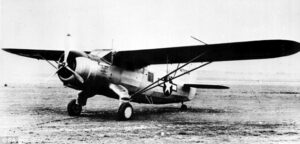 up after the war, sent to the United States and locked away. I understand the need to keep wartime documents under wraps, but so many years later…why is it necessary to hide that information from the grieving families. The information was there, they were just not given access. It turns out that witnesses saw Miller get on the plane, and the plane, a C64 Norseman, had a known problem with the carburetor heaters. While the bodies and the plane were not found, it is pretty certain that the freezing weather that day froze the lines, causing the plane to crash shortly after takeoff. I don’t suppose we will know for sure, until the plane is found, but after all these ears, that seems unlikely.
up after the war, sent to the United States and locked away. I understand the need to keep wartime documents under wraps, but so many years later…why is it necessary to hide that information from the grieving families. The information was there, they were just not given access. It turns out that witnesses saw Miller get on the plane, and the plane, a C64 Norseman, had a known problem with the carburetor heaters. While the bodies and the plane were not found, it is pretty certain that the freezing weather that day froze the lines, causing the plane to crash shortly after takeoff. I don’t suppose we will know for sure, until the plane is found, but after all these ears, that seems unlikely.

 My grandniece, Reece Balcerzak is a spunky, happy girl, with a bubbly personality. I love seeing Reece’s interactions with and views of the world around her. She views everything with a sense of wonderment and delight. You might think that because she got a super early start in life, her parents might feel the need to be overly protective, but they are level-headed people who realize that once she left Presbyterian Saint Luke’s Hospital in Denver, Colorado, she was a strong, healthy baby. Reece was a fighter…at least in that sense of the word. Other than that, she is just a happy girl, who doesn’t really do a lot of fighting. Reece is big sister to her little brother Asa, and they sure do love each other. Reece is a born motherly type, and she loves to show her brother everything she knows, especially how to have fun.
My grandniece, Reece Balcerzak is a spunky, happy girl, with a bubbly personality. I love seeing Reece’s interactions with and views of the world around her. She views everything with a sense of wonderment and delight. You might think that because she got a super early start in life, her parents might feel the need to be overly protective, but they are level-headed people who realize that once she left Presbyterian Saint Luke’s Hospital in Denver, Colorado, she was a strong, healthy baby. Reece was a fighter…at least in that sense of the word. Other than that, she is just a happy girl, who doesn’t really do a lot of fighting. Reece is big sister to her little brother Asa, and they sure do love each other. Reece is a born motherly type, and she loves to show her brother everything she knows, especially how to have fun. 
Both Reece is her own girl, and she follows her own path. Her parents, Keifer and Katie Balcerzak, are her biggest fans, and who can blame them. Reece is a sweet little treasure with an infectious giggle. She looks at life with a happy-go-lucky attitude, and she doesn’t let anything get her down. I’m not even sure I have ever seen her with a serious or scowling look on her face, but I suppose there must have been a time or two when she did. The fact is that Reece looks at life as a gift to be treasured and a challenge to be met. Maybe that comes from her uncertain beginnings, but the fact that she was a teeny tiny little preemie girl has never held her back.
Reece is a first grader this year, and she loves going to school, playing with her friends, and learning new things. She has a curious mind, and a playful spirit. I’m sure that like most first graders, her favorite class is 
 recess, but I’m also sure she is a good little student. She makes friends easily, and she is very resourceful. She likes to be active and has tried a number of different sports. I don’t know if she has settled on any one thing as her absolute favorite, but she has lots of time to make up her mind. For now, she has her own ideas on things, and while her ideas may not be what the rest of the world thinks, Reece just doesn’t care. She only needs to be true to herself anyway, right. Today is Reece’s 7th birthday. Happy birthday Reece!! Have a great day!! We love you!!
recess, but I’m also sure she is a good little student. She makes friends easily, and she is very resourceful. She likes to be active and has tried a number of different sports. I don’t know if she has settled on any one thing as her absolute favorite, but she has lots of time to make up her mind. For now, she has her own ideas on things, and while her ideas may not be what the rest of the world thinks, Reece just doesn’t care. She only needs to be true to herself anyway, right. Today is Reece’s 7th birthday. Happy birthday Reece!! Have a great day!! We love you!!
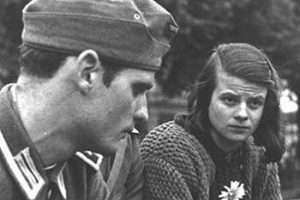
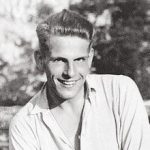 I’ve been listening to an audiobook called the “The Germans In Normandy.” Of course, I’m not a fan of the Germans in World War II, but this book talks about the German perspective about that battle. We all think that the German soldiers went blindly into battle, faithful to their leader…or at least most of them, but the German soldiers all had doubts. They all thought Hitler was about half crazy, but they were afraid to say anything…for the most part anyway.
I’ve been listening to an audiobook called the “The Germans In Normandy.” Of course, I’m not a fan of the Germans in World War II, but this book talks about the German perspective about that battle. We all think that the German soldiers went blindly into battle, faithful to their leader…or at least most of them, but the German soldiers all had doubts. They all thought Hitler was about half crazy, but they were afraid to say anything…for the most part anyway.
As I’ve listened to the book, the Hitler Youth came into the story, and I began to wonder, not only how the Hitler Youth felt about Hitler and the Third Reich, but how many of them stayed faithful to Hitler’s ideals and how many of them turned from Hitler’s ideals. So, I did a little research.
Hitler believed that by conditioning young people in groups as the Hitler Youth, they “never be free again, not in their whole lives.” While many young individuals were profoundly influenced by these organizations, support for the Hitler Youth was not as extensive as Nazi leaders had hoped. The youth initially joined and were very excited about their participation, but as time went on, their interest declined. Many young people skipped certain meetings and activities, despite mandatory attendance requirements, resulting in inconsistent loyalty. The reasons behind their declining enthusiasm for Hitler Youth activities were not solely political or moral at times, young individuals simply grew weary of the numerous obligations or became bored. In 1939, the Social Democratic Party, which had been banned by the Nazis and operated covertly, published a report on German  youth that highlighted some of this frustration. Young people are notorious for promoting change, and that was what they thought they were doing. The restrictions placed on them by the organizers of the Hitler Youth made many of the youth want to walk away.
youth that highlighted some of this frustration. Young people are notorious for promoting change, and that was what they thought they were doing. The restrictions placed on them by the organizers of the Hitler Youth made many of the youth want to walk away.
Of those who did walk away was Hans Scholl, along with Alexander Schmorell, one of the two founding members of the White Rose resistance movement in Nazi Germany. The White Rose was a non-violent, intellectual resistance group in the Third Reich. The group was led by Hans Scholl, and his sister, Sophie, along with several other former Hitler Youth members. The students attended the University of Munich. Their objective was to raise awareness through anonymous leaflets and a graffiti campaign that called for active opposition to the Nazi regime. the anonymity of their actions, Third Reich had spies everywhere. Hans became disillusioned because he had assembled a collection of folk songs, and his young charges loved to listen to him singing, accompanying himself on his guitar. He knew not only the songs of Hitler Youth but also the folk songs of many peoples and many lands. He loved how magically a Russian or Norwegian song sounded with its dark and dragging melancholy. And he thought about what it told of the soul of those people and their homeland! Then, Hans was told the songs were not allowed. He had aways thought that people should be able to pursue the things that interested them, but now the Hitler Youth program was no longer what he thought it was, and he walked away.
Hans and Sophie Scholl, along with Christoph Probst, were prominent members of the core group. The activities of The White Rose in Munich began on June 27, 1942, and ended in the arrest of the group by the Gestapo on February 18, 1943. Those apprehended now faced death sentences or imprisonment in show trials conducted 
 by the Nazi People’s Court (Volksgerichtshof). During the trial, Sophie interrupted the judge multiple times, but her remarks went unacknowledged. The defendants were not given the opportunity to speak. They had no means to defend themselves and were declared guilty during the “trial.” They were executed by guillotine four days after their arrest, on February 22, 1943. The group, which had only been active for eight months, had never committed any violent acts. They were sentenced to death. Hitler’s regime regarded them as a greater threat due to their pamphlets and art than if they had killed people.
by the Nazi People’s Court (Volksgerichtshof). During the trial, Sophie interrupted the judge multiple times, but her remarks went unacknowledged. The defendants were not given the opportunity to speak. They had no means to defend themselves and were declared guilty during the “trial.” They were executed by guillotine four days after their arrest, on February 22, 1943. The group, which had only been active for eight months, had never committed any violent acts. They were sentenced to death. Hitler’s regime regarded them as a greater threat due to their pamphlets and art than if they had killed people.
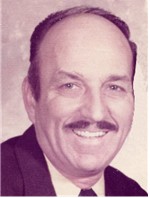
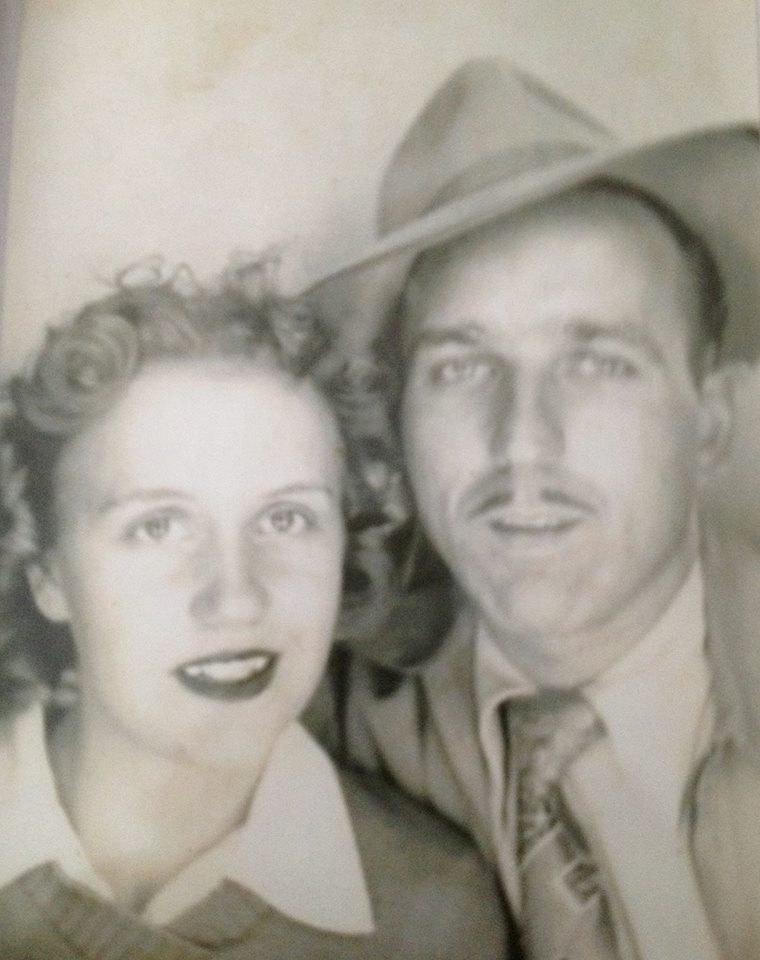 When you lose a parent, it seems like time stops; and for them, I guess it does…at least on the earth, but in reality…and for the rest of us, time marches on. Of course, that means that very quickly we find ourselves wondering how it could possibly be that…in my case, my dad, Allen Spencer has been in Heaven for 17 years. My dad was the first of my parents, and of my husband’s parents to move to Heaven, so for me, it was like going into the unknown. To make matters worse, I was somehow under the impression that my dad would be around for the rest of my life. Yes, I know how that sounds, but the mind thinks its own thoughts, we don’t plan the thoughts the pop into our heads.
When you lose a parent, it seems like time stops; and for them, I guess it does…at least on the earth, but in reality…and for the rest of us, time marches on. Of course, that means that very quickly we find ourselves wondering how it could possibly be that…in my case, my dad, Allen Spencer has been in Heaven for 17 years. My dad was the first of my parents, and of my husband’s parents to move to Heaven, so for me, it was like going into the unknown. To make matters worse, I was somehow under the impression that my dad would be around for the rest of my life. Yes, I know how that sounds, but the mind thinks its own thoughts, we don’t plan the thoughts the pop into our heads.
My sisters, Cheryl Masterson, Caryl Reed, Alena Stevens, and Allyn Hadlock, were blessed with amazing parents. They raised us in a loving Christian home. We were blessed with parents who taught is how to become respectable members of society, and also loving members of a family. When Dad went to Heaven, he knew that we would take care of Mom…and we did. It was not just a sense of duty to them both, but of love and respect for them both. I think it is the hope of all of our family 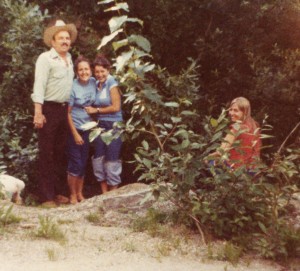
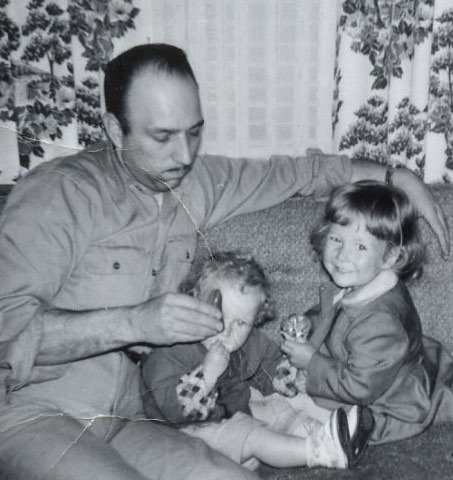 members, now including grandchildren, great grandchildren, and great great grandchildren; that we have grown into people that would make our parents proud. They left us a legacy of love and caring, that we want to pass on to our own children, grandchildren, and great grandchildren.
members, now including grandchildren, great grandchildren, and great great grandchildren; that we have grown into people that would make our parents proud. They left us a legacy of love and caring, that we want to pass on to our own children, grandchildren, and great grandchildren.
Dad’s legacy included so much more. He had served in the Army Air Forces, in World War II, stationed at Great Ashfield, Suffolk, England with the 8th Air Force 385th Bomber Group. He served with honor and dignity, and we have always been proud his service. He was a valued member of his crew, serving as the top turret gunner and flight engineer, and he saved his plane and crew from crashing when he hung out of the open bomb bay doors to manually lower the stuck landing gear as the ground rushed toward them. He was a hardworking man, working two or more jobs, if necessary, to support his family. That taught us a strong work ethic and a strong sense of giving, that we continue to carry with us today.

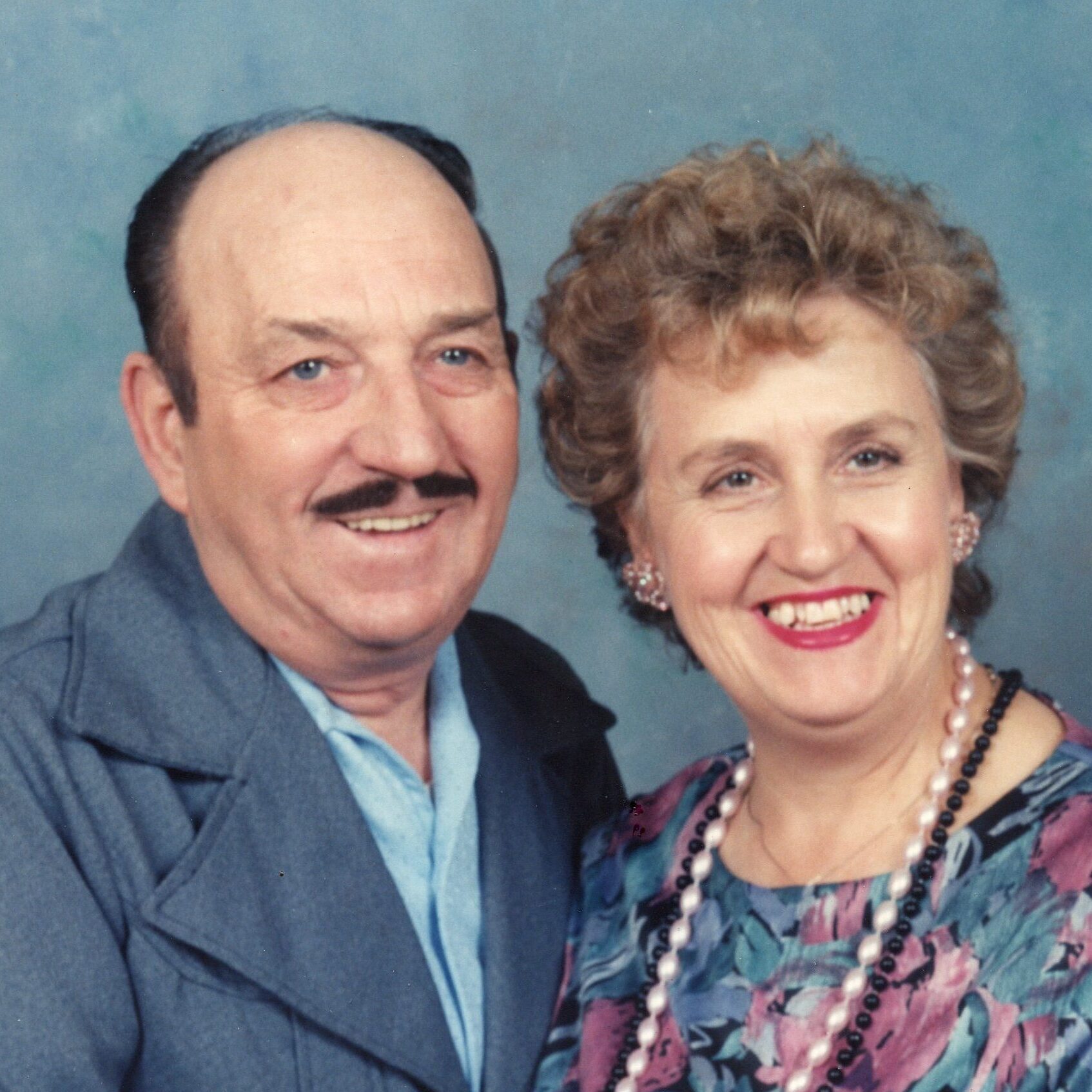
While 17 years have passed since our dad went to Heaven, we still want to do everything we can to continue to make his proud of the daughters he and Mom raised. We are all prayer warriors, and we pray over an ever-growing list of prayer requests from family and friends, which I think would have made our parents the proudest of the children they raised. We miss our parents so much and thinking about them on this the 17th anniversary of my dad’s homegoing, still makes us sad, but we know that we will see them again, when we are all reunited in Heaven. We love and miss you dad and mom, and we can’t wait to see you again one day.

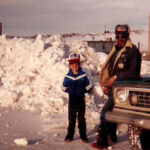 My nephew, Barry Schulenberg has a year as a supervisor under his belt now, and he has decided that he really likes being the one in charge. It’s not about being power hungry, but rather about helping his workers to become the best team they can be. The job they do is important to people of this county. Barry is a supervisor for the Highway Department, and his area is Natrona County. He is dedicated to keeping our highways safe for the people who drive on them, and he does an excellent job.
My nephew, Barry Schulenberg has a year as a supervisor under his belt now, and he has decided that he really likes being the one in charge. It’s not about being power hungry, but rather about helping his workers to become the best team they can be. The job they do is important to people of this county. Barry is a supervisor for the Highway Department, and his area is Natrona County. He is dedicated to keeping our highways safe for the people who drive on them, and he does an excellent job.
Barry had never considered being the boss, until this position was offered to him. Since he was a little kid, hanging out with his grandpa, my father-in-law, Walt Schulenberg, all Barry wanted to do was to be a mechanic…just like his grandpa. In fact, Barry simply couldn’t see the need to go to school when his grandpa needed him to help out in the garage. Of course, that was Barry as a five-year-old, and he soon realized that school was important too…unfortunately. These days, as the supervisor, I’m sure he is thankful for his education, which allowed him to be promoted to the position he now holds.


Barry loves his job, but it is not his whole life. On his off-duty time, Barry likes to hang out with his wife Kelli and their dog, Scout. He loves camping, hiking, bicycling, snowshoeing, and cross-country skiing. He also loves to travel and go to concerts…a passion he and Kelli share. The have a place out in the country as well, that provides them the peace and quiet they enjoy. He can often be found in the summertime, mowing on is riding mower, or watering the trees, when he isn’t relaxing or playing with Scout. The Big Horn Mountains is one of their favorite places to go camping, and like many other Wyomingites, the summer fires up there have left them concerned for their favorite camping spots. Last summer’s fire was one that was almost unheard of in prior years. Much of the forest, including a lot of the campgrounds were damaged. I’m sure it will be with great anxiety that people will head back up there this summer.


All in all, it has been a great year for Barry. He and Kelli have done some traveling, and Barry has had to travel for meetings and such for his job, but it has been good. I don’t suppose most people like meetings, and I don’t know how Barry feels about them, but it has been a real learning experience for him, and while it isn’t the way he thought his life would turn out, I know that being a supervisor was the next logical step, and one he can be proud to have taken. Today is Barry’s birthday. Happy birthday Barry!! Have a great day!! We love you!!
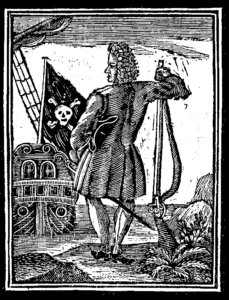 During five weeks in the fall of 1718, Charleston’s citizens observed thirteen trials involving fifty-eight men charged with piracy. Piracy was and is looked upon as a particularly heinous crime. Most of the documentation of the trials was done by clerks working feverously with quill and ink. Pirates were and are known for the viciousness of the crimes they commit. For them, it is not enough to steal the valuables from the boats to seize, they didn’t consider their attack complete until they had brutalized their victims. Piracy in that period included aggravated armed robbery, assault, murder, rape, and kidnapping at sea. It was a growing menace, and its presence at so close to colonial borders demanded and received the full attention of local authorities.
During five weeks in the fall of 1718, Charleston’s citizens observed thirteen trials involving fifty-eight men charged with piracy. Piracy was and is looked upon as a particularly heinous crime. Most of the documentation of the trials was done by clerks working feverously with quill and ink. Pirates were and are known for the viciousness of the crimes they commit. For them, it is not enough to steal the valuables from the boats to seize, they didn’t consider their attack complete until they had brutalized their victims. Piracy in that period included aggravated armed robbery, assault, murder, rape, and kidnapping at sea. It was a growing menace, and its presence at so close to colonial borders demanded and received the full attention of local authorities.
Between 1716 and 1718, several pirate ships frequently disrupted the maritime traffic entering and leaving Charleston’s port. These incidents significantly halted South 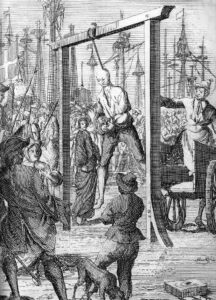 Carolina’s crucial sea trade. It was a serious matter and demanded serious repercussions. The pirate incursions were far more than mere nuisances or disruptions to trade. The fact was that they posed a real danger to the lives of many and threatened the political and economic foundations of the young colony. Unfortunately, with no local newspaper in Charleston until January 1732, there are no detailed accounts of the pirate activities of the 1710s. Finally, the provincial government of South Carolina, located in Charleston, engaged in discussions and formulated a collective response to the pirate threats of 1717 and 1718, but the particulars of their actions have mostly been lost to history. Consequently, we lack sufficient resources to fully narrate South Carolina’s brush with what our legislature once termed the “Pirates of the Bahamas.” Major Stede Bonnet’s crew consisted of Alexander Amand/Annand (from British Jamaica), Job ‘Bayley’ Baily (from London), Samuel Booth (from Charles Town), Robert Boyd (from Bath Town), Thomas Carman
Carolina’s crucial sea trade. It was a serious matter and demanded serious repercussions. The pirate incursions were far more than mere nuisances or disruptions to trade. The fact was that they posed a real danger to the lives of many and threatened the political and economic foundations of the young colony. Unfortunately, with no local newspaper in Charleston until January 1732, there are no detailed accounts of the pirate activities of the 1710s. Finally, the provincial government of South Carolina, located in Charleston, engaged in discussions and formulated a collective response to the pirate threats of 1717 and 1718, but the particulars of their actions have mostly been lost to history. Consequently, we lack sufficient resources to fully narrate South Carolina’s brush with what our legislature once termed the “Pirates of the Bahamas.” Major Stede Bonnet’s crew consisted of Alexander Amand/Annand (from British Jamaica), Job ‘Bayley’ Baily (from London), Samuel Booth (from Charles Town), Robert Boyd (from Bath Town), Thomas Carman 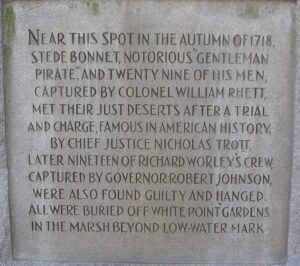 (from Maidstone, Kent), and George Dunkin (from Glasgow), to name a few, were considered particularly vicious, and their punishments would need to be vicious as well.
(from Maidstone, Kent), and George Dunkin (from Glasgow), to name a few, were considered particularly vicious, and their punishments would need to be vicious as well.
Following the trials and guilty verdicts, Major Stede Bonnet and his crew of 29 men were hanged on November 8, 1718, at White Point, Charleston, South Carolina. It had been decided that hanging just wasn’t bad enough for the crimes these men committed. I’m sure they thought long and hard about how they could show the same viciousness to these men, that they had shown to their victims. Finally, they came up with the perfect final punishment. Following their hanging, these men were buried in the marsh below the low watermark.
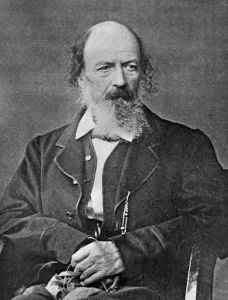 I’ve always thought the poem “The Charge of the Light Brigade” by Alfred Lord Tennyson was an interesting poem, but I didn’t always know what it was about. Published on December 9, 1854, by The Examiner, the poem honored the bravery of 600 British soldiers who charged a heavily fortified position at the Battle of Balaklava in Crimea, only six weeks prior.
I’ve always thought the poem “The Charge of the Light Brigade” by Alfred Lord Tennyson was an interesting poem, but I didn’t always know what it was about. Published on December 9, 1854, by The Examiner, the poem honored the bravery of 600 British soldiers who charged a heavily fortified position at the Battle of Balaklava in Crimea, only six weeks prior.
Tennyson did not come from an idyllic home. In fact, he was born into a tumultuous and unstable household. His father, once the heir to a wealthy landowner, was passed over for inheritance in favor of his younger brother. Consequently, he joined the clergy to make ends meet and then turned to alcohol, as he became deeply depressed and embittered. Despite this, he imparted a classical education to his children. Alfred, the fourth among twelve siblings, attended Trinity College, Cambridge in 1827. That year, he and his brother Charles released “Poems by Two Brothers.” While at Cambridge, Tennyson joined a group of intellectual peers who earnestly supported his poetry. Among them was Arthur Hallam, who not only became Tennyson’s dearest friend but was also engaged to Tennyson’s sister, Emily. Unfortunately, Hallum died suddenly while on a trip overseas, so they never married. 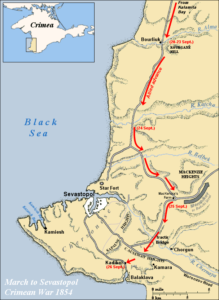
In 1830, Tennyson released “Poems, Chiefly Lyrical.” The subsequent year, after the death of his father, he had to leave Cambridge due to financial limitations. Despite facing critical scrutiny and financial hardships, Tennyson continued to commit to his craft, producing several additional volumes. The unexpected passing of Tennyson’s close friend Arthur Hallam in 1833 led to the creation of several significant pieces in Tennyson’s subsequent years, notably the acclaimed In Memoriam in 1842. That same year, he released a collection titled Poems, which included some of his finest compositions. This publication elevated Tennyson’s standing, and by 1850, which is what led to his appointment as Poet Laureate by Queen Victoria. Ultimately, Tennyson secured financial security and wed his long-time love, Emily Sellwood, to whom he had been engaged since 1836. In 1850, Tennyson had been appointed Poet Laureate, which is an eminent poet traditionally appointed for life as a member of the British royal household, by Queen Victoria. Alfred Lord Tennyson continued to write and publish poetry until his passing in 1892.
His poem, “The Charge of the Light Brigade” is really the one that interests me most. The 600 men who went  into the Battle of Balaclava knew it was a suicide mission. I’m sure most were terrified, yet they had orders, and they had to follow those orders. I’m sure that was the exact way the men who stormed the beaches at Normandy felt. How could they not? The beaches, like the valley the 600 men of the Battle of Balaclava went into, were heavily fortified, and there was really not way to go in there without losing many lives. Nevertheless, the brave men who fought in those battles, dug down deep, and gathered their courage, and did their duty. Of the 670 men who went in, miraculously only 110 were killed, even though they were taking fire from three sides. These men were very brave, and that deserves remembrance.
into the Battle of Balaclava knew it was a suicide mission. I’m sure most were terrified, yet they had orders, and they had to follow those orders. I’m sure that was the exact way the men who stormed the beaches at Normandy felt. How could they not? The beaches, like the valley the 600 men of the Battle of Balaclava went into, were heavily fortified, and there was really not way to go in there without losing many lives. Nevertheless, the brave men who fought in those battles, dug down deep, and gathered their courage, and did their duty. Of the 670 men who went in, miraculously only 110 were killed, even though they were taking fire from three sides. These men were very brave, and that deserves remembrance.

 It so hard for me to believe that my niece, Jessi Sawdon is celebrating her 40th birthday. I remember the day she was born. She was such a cutie, and as he grew, her personality shown through. Jessi is the firstborn of my sister, Allyn Hadlock and her husband, Chris Hadlock’s four children. Jessi is a very social person, and for her, every day is a celebration…and Jessi does love to celebrate!! Her sister, Lindsay says, “She’s a good aunt. Mackenzie always has fun when we go over there or if she goes to stay the night. She’s has really settled in Cheyenne…finding a great church, making some new friends, and getting into a rhythm. She’s gotten really involved in her church and her family has been growing spiritually.” Lindsay and her family live in Laramie, Wyoming, which is a little over half an hour drive from Jessi and her family in Cheyenne, Wyoming. The closeness has made it possible for Lindsay’s daughter, Mackenzie and Jessi’s daughter, Adelaide to be really good friends, and for Jessi and Lindsay to be close sisters too.
It so hard for me to believe that my niece, Jessi Sawdon is celebrating her 40th birthday. I remember the day she was born. She was such a cutie, and as he grew, her personality shown through. Jessi is the firstborn of my sister, Allyn Hadlock and her husband, Chris Hadlock’s four children. Jessi is a very social person, and for her, every day is a celebration…and Jessi does love to celebrate!! Her sister, Lindsay says, “She’s a good aunt. Mackenzie always has fun when we go over there or if she goes to stay the night. She’s has really settled in Cheyenne…finding a great church, making some new friends, and getting into a rhythm. She’s gotten really involved in her church and her family has been growing spiritually.” Lindsay and her family live in Laramie, Wyoming, which is a little over half an hour drive from Jessi and her family in Cheyenne, Wyoming. The closeness has made it possible for Lindsay’s daughter, Mackenzie and Jessi’s daughter, Adelaide to be really good friends, and for Jessi and Lindsay to be close sisters too.
For my sister, Allyn, this birthday has been one of reflection. Allyn says, “Jessi celebrated her 40th this year!! 
 Looking back over the years, I see how fun and smart and strong she is!! ‘Girls just wanna have fun’ really describes her!! She is a good wife and a terrific mother. She loves to be on the move, going camping, to museums, hiking, any downtown activities, she’s all about it. This year she wanted to celebrate as much as she could so her, and a bunch of friends went out to Napa California and toured some wineries, stayed in an air BNB, and really had a great time. They sat in the hot tub, toured the golden gate bridge area, and one of the girls had an aunt and uncle who live out there and they gave the girls the royal treatment with an all-day cruise around San Francisco Bay in their yacht! They fed them breakfast and lunch on the boat and Jessi says it was definitely a highlight of their trip. They were so kind and really made it special for the girls!!”
Looking back over the years, I see how fun and smart and strong she is!! ‘Girls just wanna have fun’ really describes her!! She is a good wife and a terrific mother. She loves to be on the move, going camping, to museums, hiking, any downtown activities, she’s all about it. This year she wanted to celebrate as much as she could so her, and a bunch of friends went out to Napa California and toured some wineries, stayed in an air BNB, and really had a great time. They sat in the hot tub, toured the golden gate bridge area, and one of the girls had an aunt and uncle who live out there and they gave the girls the royal treatment with an all-day cruise around San Francisco Bay in their yacht! They fed them breakfast and lunch on the boat and Jessi says it was definitely a highlight of their trip. They were so kind and really made it special for the girls!!”

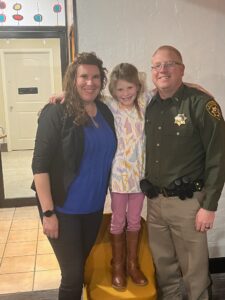
Then, her husband, Jason threw her 40th birthday party out at the Hangar, in Casper, Wyoming, and we celebrated her all evening. Allyn and Chris helped him plan the party, and it really turned out nice. Last Thursday, they were back in town for Jessi’s company Christmas party, and we gave her a birthday dinner here on Friday night with grilled steak, potatoes, and roasted veggies. Allyn really hopes she had the 40th year of her dreams, and she knows the fun will continue because “she just wants to have fun!!” Truer words were never spoken. Jessi is a fun-loving person and always put a smile on your face. Today is Jessi’s 40th birthday!! Happy birthday Jessi!! Have a great day!! We love you!!
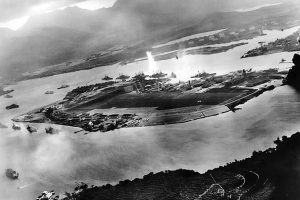
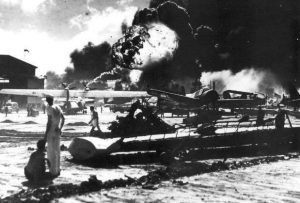 The 83rd anniversary of Pearl Harbor, at least for the Baby Boomer generation and older, prompts reflection on the United States’ stance of often waiting for an initial attack before responding. While this is not always the case, it appears to be a common scenario. The US strives to act as a peacemaker, and the decision to go to war is never taken lightly due to the grave consequences of taking lives. Typically, numerous warnings are issued before any action is taken, and frequently, it’s too late to preemptively strike. The first to strike is often labeled the aggressor, but there are times when ample warning signals an imminent attack, yet the response is still delayed, until the attack occurs, resulting in loss of life and leaving the survivors to deal with the aftermath rather than considering an immediate counterstrike. Of course, the reverse is hard to deal with too, because we would come off as being the aggressor, and that just isn’t our style.
The 83rd anniversary of Pearl Harbor, at least for the Baby Boomer generation and older, prompts reflection on the United States’ stance of often waiting for an initial attack before responding. While this is not always the case, it appears to be a common scenario. The US strives to act as a peacemaker, and the decision to go to war is never taken lightly due to the grave consequences of taking lives. Typically, numerous warnings are issued before any action is taken, and frequently, it’s too late to preemptively strike. The first to strike is often labeled the aggressor, but there are times when ample warning signals an imminent attack, yet the response is still delayed, until the attack occurs, resulting in loss of life and leaving the survivors to deal with the aftermath rather than considering an immediate counterstrike. Of course, the reverse is hard to deal with too, because we would come off as being the aggressor, and that just isn’t our style.
On December 7, 1941, the United States found itself in a precarious position. Despite repeatedly warning Japan, the United States using the Hull Note as a show of the ultimate caution, tried to avoid entering World War II. The Hull Note officially the Outline of Proposed Basis for Agreement Between the United States and Japan, was the final proposal delivered to the Empire of Japan by the United States of America before the attack on Pearl Harbor (December 7, 1941) and the Japanese declaration of war (seven and a half hours after the attack began). Unfortunately, Japan to all that as a show of weakness. Nevertheless, knowing that Japan would likely not comply, and essentially declaring war, the US still hoped they would proceed slowly, perhaps 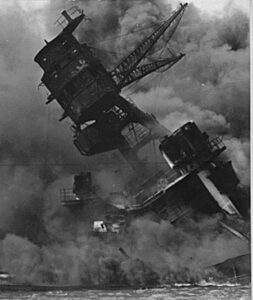 even reconsider their course. Conversely, Japan acted swiftly, dispatching their strike force towards Pearl Harbor and simultaneously sending a decoy towards Thailand to mislead the US. Then, believing an attack on Thailand was imminent, President Roosevelt implored Emperor Hirohito via telegram to act “for the sake of humanity” and prevent further devastation. The US endeavored to maintain peace.
even reconsider their course. Conversely, Japan acted swiftly, dispatching their strike force towards Pearl Harbor and simultaneously sending a decoy towards Thailand to mislead the US. Then, believing an attack on Thailand was imminent, President Roosevelt implored Emperor Hirohito via telegram to act “for the sake of humanity” and prevent further devastation. The US endeavored to maintain peace.
After transmitting the telegram, President Roosevelt was working on his stamp collection alongside his personal advisor, Harry Hopkins. They deliberated over Japan’s rejection of the Hull Note. Hopkins proposed a preemptive strike by America, but President Roosevelt maintained that it was not an option. Unbeknownst to them, it was already too late for a first strike…time had run out. The Japanese forces were en route to Pearl Harbor, where a significant segment of the Pacific Fleet lay anchored, vulnerable to attack. The impending ambush would devastate 18 US ships, including the Arizona, Virginia, California, Nevada, and West Virginia, either destroyed, sunk, or capsized. Over 180 aircraft were destroyed on the ground, with an additional 150 damaged, leaving a mere 43 operational. American casualties exceeded 3,400, with over 2,400 fatalities—1,000 of which occurred on the Arizona alone. The Japanese incurred fewer than 100 losses.
It often appears that the party who strikes first, swiftly and with the element of surprise, ultimately fares better. The side caught off guard, or the one that ignored the warning signs, is usually defeated. With one of the strongest military forces on Earth, America should not be taken by surprise. I believe that overconfidence in one’s strength, leading to a lack of vigilance, can result in the downfall of even the mightiest. The United States has been such a force, but our reluctance to preemptively strike seems to invite repeated attacks without warning. It is only after such attacks that we seem to retaliate.
It’s indeed a dilemma, perhaps reflective of President Roosevelt’s perspective. If we strike first, we’re vilified globally as the aggressors, akin to those at Pearl Harbor. If we don’t, we face condemnation from our own citizens. Moreover, our intelligence isn’t infallible, leading to situations like the surprise attack on December 7th, 1941, when we expected honor from an adversary who did not feel bound by it. It seems that although being 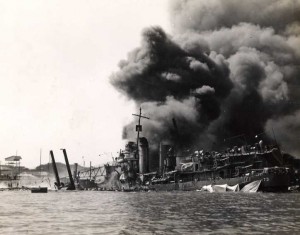
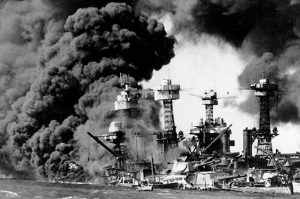 attacked unprovoked is undesirable, we must still act honorably and not launch a preemptive strike merely based on anticipated aggression. Otherwise, we become indistinguishable from those nations we confront in war for their acts of invasion. Nevertheless, it remains a huge challenge to always be the nation that does the right things, especially when there is a profound mistrust of our enemies…because we know better.
attacked unprovoked is undesirable, we must still act honorably and not launch a preemptive strike merely based on anticipated aggression. Otherwise, we become indistinguishable from those nations we confront in war for their acts of invasion. Nevertheless, it remains a huge challenge to always be the nation that does the right things, especially when there is a profound mistrust of our enemies…because we know better.

